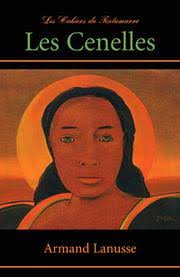
Les Cenelles, published by Lanusse
*The birth of Armand Lanusse is celebrated on this date in 1810. He was a Creole educator and poet.
He was born in New Orleans as a free man of color. He lived his entire life in that city. Due to majority-European ancestry, Lanusse could have passed as white, but he embraced his Black ancestry. He devoted his life to the republican ideals of liberty and equality for Blacks in the United States. In 1845, Lanusse edited and contributed to Les Cenelles, a collection of 85 poems written in French by 18 Afro-Creole poets of Louisiana. In 1848, Lanusse organized a group of 10 other prominent members of the Afro-Creole community to found "The Catholic Institute for the Instruction of Indigent Orphans," or "L'Institut Catholique."
This group successfully sued to obtain control of the estate of Madame Couvent, a wealthy free Black woman who died in 1837. She had bequeathed her estate of properties to establish a school for orphans in Louisiana. When a permanent building was constructed for this school in 1852, Lanusse became its principal. He served in that capacity until he died in 1868. While principal, Lanusse established a classical curriculum. It included grammar, logic, rhetoric, mathematics, French, English, science, and personal hygiene.
At its peak, the school had 200 students, primarily Afro-Creole orphans and the children of less affluent Afro-Creole parents. In 1861, Lanusse became an officer in the 1st Louisiana Native Guard (CSA), a position he held until that unit disbanded in April 1862. Shortly after the fall of New Orleans to Union forces in May 1862, Lanusse refused to follow Union General Benjamin Butler's order to fly the American flag over the Institute Catholique. He later regretted this refusal and became an ardent supporter of the abolitionist cause. Armand Lanusse died on March 16, 1868.